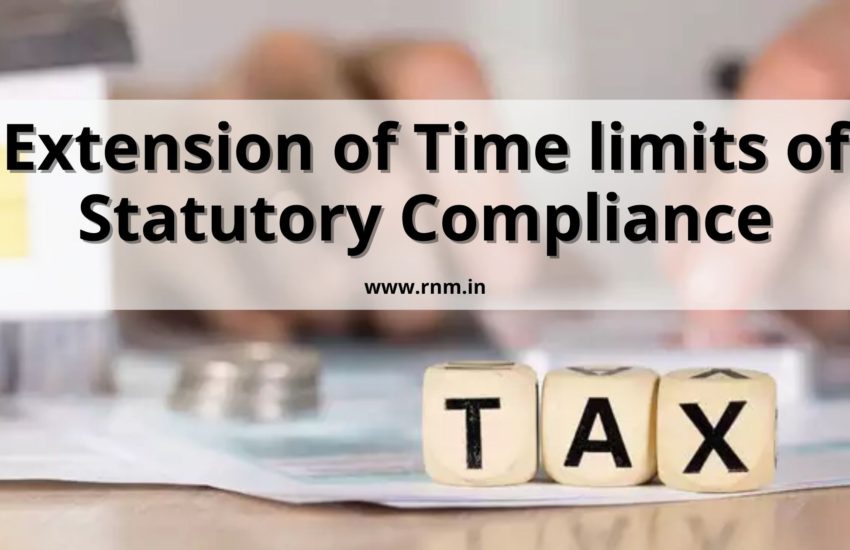Important Statutory Developments
- Extension of due dates for filing tax return for FY 2019-20:
CBDT yet again extended the due date of income tax return for the FY 2019-20. Due dates for corporate assessee has been extended from 31 January 2021 to 15 February 2021 and in case of non –corporate assessee due date has been extended from 31st December 2020 to 10 January 2021. Further Due date for filing tax audit and Transfer Pricing certificate has been extended from 31 December 2020 to 15 January 2021.
- Extension of due date for filing application for Vivad se Vishvas scheme:
Due date for filing of application under Vivad se Vishvas scheme has been extended from 31 December 2020 to 31 January 2021.
- Vivad se Vishwas Scheme Circular no 21/2020:
In order to facilitate the taxpayers, the Board had vide circular no. 9/2020 dated 22nd April, 2020 issued clarifications in form of answers to 55 frequently asked questions (FAQs) on issues related to eligibility, computation of amount payable, procedure and consequences under Vivad se Vishwas. This circular is being issued in continuation of circular dated 22nd April, 2020 (which covered Q. no. 1 – 55) under section 10 and 11 of the Vivad se Vishwas to provide answers to 34 more FAQs (Q. no. 56 – 89).
- Tax deduction at source against the salary Income Circular no 21/2020:
Reference is invited to Circular No. 4/2020 dated 16-1-2020 whereby the rates of deduction of income-tax from the payment of income under the head “Salaries” under section 192 of the Income-tax Act, 1961 (hereinafter ‘the Act’), during the financial year 2019-20, were intimated. The present Circular contains the rates of deduction of income-tax from the payment of income chargeable under the head “Salaries” during the financial year 2020-21 and explains certain related provisions of the Act and Income-tax Rules, 1962 (hereinafter the Rules).
- Search and Seizure by Income tax authority:
Income Tax Department started a Search and Survey action on 22-12-2020 in the cases of three leading contractors of North Eastern India. One of the groups is also into Hospitality business. The Search and Survey actions are being carried out at 14 locations in Guwahati, Delhi, Silapathar and Pathsala (Assam). The main allegations against the three groups are that they have taken accommodation entries in the form of non genuine unsecured loans and also securities premium from dubious Kolkata based shell companies. The three groups have suppressed their net profits across the years and routed back into business the unaccounted income through entry operators based out of Guwahati and Kolkata.
Important Judicial Precedents
- Pr. Commissioner Of Income Tax (Central) – 2 vs. M/s Harsh International Pvt. Ltd, (I.T.A. No. 620/2019).
Penalty Proceedings are an outcome of assessment and if the assessment itself is debatable, the penalty proceedings cannot survive and it can only be levied in cases where the concealment of income has been proven. If the quantum orders itself has been challenged. It shows that the alleged concealment is not final and issue is disputable. Consequently, the penalty levied by assessing officer cannot survive in such case
- Interactive Avenues Private Limited vs. DCIT(ITAT Mumbai)[ ITA No.: 3130/Mum/19]
Section 40(a)(i) is a restriction on deductibility of expenses under section 30 to 38. If the related expenditure is not claimed as a deduction under 30 to 38, this disallowance cannot be pressed into service at all.
- Bank of India v ACIT Circle 2(1)(1) ITA: 1767/ Mum/ 2019
The fact that profits of foreign branches of a resident are taxed outside India under tax treaties does not imply that the said income is not taxable in India. The entire global income has to be taxed in India. The assesse is entitled to credit for taxes paid abroad, as admissible under the treaty or the domestic law. (ii) S. 115JB applies to banking companies after the 2012 amendment. Even profits of foreign branches which are taxed under the tax treaties are also liable for MAT. (iii) The argument that S. 90 overrides S. 115JB and so the incomes taxed abroad should be excluded from taxation of book profits u/s 115 JB is not correct. Treaty protection come normally into play for taxation of a non-resident in India, i.e. source country taxation, and not for taxation of a resident in whose hands global income is to be taxed anyway. All that one gets in the residence jurisdiction, by the virtue of tax treaties, is tax credits for the taxes paid abroad.
- Pr. CIT (C), Bangalore vs. Dr. Ranjan Pai [ITA No. 501 OF 2015][ High Court Of Karnataka]
Issue of bonus shares by the company, provisions of section 56(2)(vii) shall not be invoke.

